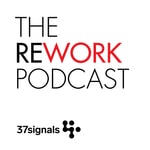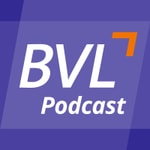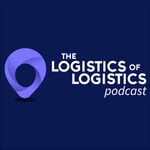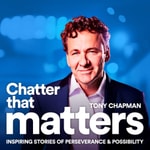On Boards Podcast – Details, episodes & analysis
Podcast details
Technical and general information from the podcast's RSS feed.
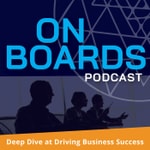
On Boards Podcast
Joe Ayoub & Raza Shaikh
Frequency: 1 episode/24d. Total Eps: 84

Recent rankings
Latest chart positions across Apple Podcasts and Spotify rankings.
Apple Podcasts
🇬🇧 Great Britain - management
29/07/2025#88🇬🇧 Great Britain - management
13/07/2025#91🇫🇷 France - management
12/06/2025#98🇫🇷 France - management
11/06/2025#83🇫🇷 France - management
10/06/2025#75🇫🇷 France - management
09/06/2025#54🇫🇷 France - management
08/06/2025#44🇫🇷 France - management
07/06/2025#38🇫🇷 France - management
06/06/2025#19🇫🇷 France - management
05/06/2025#29
Spotify
No recent rankings available
Shared links between episodes and podcasts
Links found in episode descriptions and other podcasts that share them.
See allRSS feed quality and score
Technical evaluation of the podcast's RSS feed quality and structure.
See allScore global : 63%
Publication history
Monthly episode publishing history over the past years.
70. Navigating Board Dynamics and Strategic Leadership with Karen Boykin-Towns
Season 9 · Episode 7
mardi 4 juin 2024 • Duration 35:08
With an extensive background in policy, advocacy, and corporate governance, Karen shares insights from her roles at Pfizer, iFIT Health & Fitness, and the NAACP. She recounts her journey to becoming a board member including her experiences during the IPO process at iFIT, and the challenges and triumphs of leading through turbulent times.
Additionally, Karen reflects on the significance of diversity in board composition and the enduring impact of Brown v. Board of Education on the 70th anniversary of the decision.
We love our listeners! Drop us a line or give us guest suggestions here.
Big Ideas/Thoughts/Quotes
1. First For-Profit Board Experience: iFIT Health & Fitness
Karen recounts her journey leading to joining the board of iFIT Health & Fitness, her first for profit board seat, emphasizing the importance of networking and building relationships. She shares how an unexpected opportunity arose from her connections with the Church of Latter-Day Saints and describes the rapid onboarding process and initial experiences as a new board member during a critical time for the company.
"You never know who's watching, it came through a relationship."
Challenges and Decisions During the IPO Process
Karen provides an inside look at the fast-paced environment leading up to iFIT’s planned IPO. She discusses the board’s decision-making process in response to adverse market conditions and the strategic adjustments that were necessary. The conversation highlights the importance of having a diverse and well-composed board to navigate events that are significant & challenging for a company.
"When you are preparing an S-1, you learn everything about a company very quickly."
"The numbers weren't where they were projected to be at that particular time, and I'm really proud of us because it could have been easy to just buckle down and go forward, but that was not the right thing for the company."
Post-IPO Attempt and Company Turnaround
The discussion moves to the aftermath of the decision to not proceed with the IPO and the strategies employed to stabilize and grow iFIT Health & Fitness.
"What I'm happy to say is that despite the overall industry being at a bit of a downturn, we have come through the worst of it, at least we hope we've navigated through the turmoil and are at a new era."
2. Work at Pfizer
Karen reflects on her 20-year career at Pfizer, where she transitioned from government work to corporate affairs. She discusses her role as Pfizer’s first Chief Diversity Officer and the development of a global diversity and inclusion strategy.
Leadership During COVID-19
Karen discusses the significant challenges and achievements of Pfizer during the COVID-19 pandemic under the leadership of Albert Bourla. Karen’s insights emphasize the critical role of strong leadership in navigating crises and driving impactful results.
"I believe to my core that no one else could have gotten that company to have that level of impact in such a short period of time [during the Covid outbreak] other than Albert Bourla and the team that he leads."
"Leadership matters"
3. Role with the NAACP
Karen is the Vice Chair of the NAACP’s National Board of Directors and provides an overview of her role discussing the organization’s mission, structure, and its ongoing important advocacy work. She also reflects on the 70th anniversary of the Brown v. Board of Education decision and its lasting impact on education equality. The conversation underscores the importance of historical context in shaping current and future initiatives for civil rights and social justice.
On recognizing the 70th anniversary of Brown v Board of Education in the Oval Office
“It is a moment I will never forget and it's not just about being in the Oval Office with the President, but it was being there with these family members who had made so many sacrifices."
4. Final Thoughts and Takeaways
The episode concludes with Karen’s reflections on the importance of leadership, diversity, and strategic decision-making in board roles. She shares personal insights from her career journey and offers advice for aspiring board members, emphasizing the value of passion and commitment to the mission of the organizations board members serve.
69. The Culturally Conscious Board
Season 9 · Episode 6
mardi 28 mai 2024 • Duration 37:10
Jennifer Jukanovich, a seasoned nonprofit leader with nearly three decades of experience discusses her forthcoming book, The Culturally Conscious Board: Setting the Boardroom Table for Impact, which explores the importance of board culture in achieving organizational success. The conversation addresses a number of important aspects of board governance, including board culture and the critical role of trust and humility.
We love our listeners! Drop us a line or give us guest suggestions here.
Big Ideas/Thoughts/Quotes
1. The Culturally Conscious Board
· Two important concepts which are emphasized:
o The significance of board culture and its impact on decision-making and governance, and the role of trust, humility, and hospitality in building an effective board culture.
o Jennifer’s closing thoughts on the importance of strong board culture in the nonprofit sector.
· Encouragement for boards to engage in deeper conversations and continuous improvement.
· Introduction to the "board culture placemat" and its use in facilitating board discussion and b building a strong board culture.
· Examples of successful practices for building and maintaining a healthy board culture.
"Boards are assets to our society, and our hope is that our book, The Culturally Conscious Board, will contribute to that conversation." Jennifer Jukanovich
Book Reviews
“Sitting on a board is easy. But being a great board member is another matter entirely, especially if your organization needs change. Jukanovich and West show you how to do it with confidence and grace.”
Arthur C. Brooks, Professor, Harvard Kennedy School and Harvard Business School, and #1 New York Times bestselling author
“‘Culture eats strategy for breakfast,’ Drucker said, and most boards don’t explore how their culture either detracts from or advances their mission. This work invites boards to move from habits and traditions that restrict their impact toward deeper examinations to make wise changes and meet the challenges of our day.”
Robert C. Andringa, Managing Partner, The Andringa Group, and coauthor of Nonprofit Board Answer Book
2. Challenges and Opportunities in Board Governance
o The importance of diverse representation and an inclusive board culture.
o Practical advice on improving board culture, including transparency, accountability, and feedback mechanisms.
o Addressing issues such as long-term leadership and the balance between large boards and effective decision-making.
"Humility catalyzes greater trust, whether that is your family or that's a board."
"Good governance creates health. Good boundaries create healthy culture."
4. The Critical Partnership between the CEO and the board chair
o How the board chair can help ensure all voices are heard and foster a culture of openness and respect.
60. Lisa Thompson - Becoming an impactful board member
Season 8 · Episode 4
jeudi 16 novembre 2023 • Duration 33:38
Lisa Spadafora Thompson the founder and CEO of Sturbridge Growth Partners, a virtual network of consultants, thought leaders, and practitioner specializing in growth strategies, talks about her experience as a consultant and how she has used those skill to become an impactful board member.
We love our listeners! Drop us a line or give us guest suggestions here.
Links:
Bio: linkedin.com/in/lisa-spadafora-thompson
Articles:
Big Ideas/Thoughts/Quotes:
Sturbridge Growth Partners
Lisa founded Sturbridge Growth Partners to serve companies in various B2B industries with customized, actionable strategies without the high fees of large consulting firms.
“Strategic pricing in B2B markets involves understanding the value you create for customers and how to maximize the value capture in the form of price.”
Board members should ask leadership more questions about how much economic value they create for customers, whether they’re maximizing the amount they can capture, and whether they’re negotiating with customers in ways that drive competitive advantage.”
Monitor Group
Lisa served on the board of The Monitor Group, a consulting firm acquired by Deloitte.
“Six years after joining The Monitor Group, I was elected to the board of directors by my peers, who were the other partners in the firm.
Shortly after winning, one of the most senior partners in the firm said, “You know why you won, right?” I laughed and said, “No, why don’t you tell me.” He said, "Because you have the ability to take on the important and contentious issues, and you need a lot of courage to do that on a board. You have that courage. That's why you got elected. Don't ever forget that.’”
What did you learn as a board member during the process through which Deloitte acquired the Monitor Group?
“One of the most important things I learned during that process is that we can tend to hyper focus on hard skills. But being on a board, particularly at a contentious period of time, the soft skills win the day - the people who can take on the tough issues in a way that aligns people, that was critically important for us during that time.”
Twin Valley Companies
Lisa serves on the board of Twin Valley Companies, a 4th generation family-owned managed service provider and telecom products business based in Kansas City. The organization and the family have a very deep-rooted culture and community in the cities and towns that they serve.
Lisa, how did you get onto the Twin Valley board?
“I applied for the Twin Valley board through an organization called the Private Directors Association (PDA) where I’ve been a member for 3 years.”
As a lifelong consultant, I've worked in a variety of different industries. The CEO liked that I had manufacturing experience, hardware, software/SaaS, and other B2B services. They weren’t looking for more telecom expertise – they wanted to learn from other industries.”
“One of the things I love most about this board is that we’re committed to operating at the highest levels of governance. We even hired an external firm to help us develop into a high-performing board. Not all private companies will do that, but they should because when companies have excellent governance they grow, and they grow profitably. That benefits all stakeholders.”
African Entrepreneurial System
Lisa is an advisor to Harambe, “a group of some of the most prominent, amazing entrepreneurs I have ever met from countries all over Africa.” They have started businesses that are geared towards solving some of the biggest problems that the continent faces, like high youth unemployment rates, increasing crop yields (80% of the arable land in the world is in Africa), and getting access to credit.
Semicolon
I was asked to join the advisory board of Semicolon, which is based in Nigeria, but expanding to serve many countries in Africa. They’re teaching young people to write software code. They’re getting jobs in the US and the UK and other parts of Europe yet continuing to live in their villages in Nigeria. So, they’re making US/UK salaries with a Nigerian cost of living. That’s game-changing for them and their families.
DGL
Lisa is involved in DGL (Doegode Leiba), a startup focused on enterprise risk management software (SaaS). The board's focus is on fundraising, strategy development, and hands-on involvement.
It was founded by a man from Ghana, who now lives in the US. “The founder recognized that a small number of issues drive the majority of risks in most organizations, especially mid-sized and large ones. He’s systemizing the process and developing a SaaS offering around it.”
EWOB (Extraordinary Women on Boards)
Extraordinary Women on Boards (EWOB) - absolutely one of the best organizations I’ve ever encountered…a high caliber group of women, who have a lot of board experience. That’s been
particularly valuable for me because I love learning from others who have even more experience than I do.
59. What do you do when your board receives a subpoena or the government is investigating your company?
Season 8 · Episode 4
dimanche 22 octobre 2023 • Duration 34:12
Ian Roffman advises boards, directors and company executives when there is trouble - a government subpoena, a whistleblower complaint, a letter or a phone call from a government regulator. In this episode we talk about what a board and management should do when this happens - and how they can position themselves in advance for an inquiry by the government.
Big Ideas/Thoughts/Quotes:
Our guest Ian Roffman helps boards, directors and company executives when they're facing what can be a significant moment in the existence of a company. Those moments can come upon the receipt of a government subpoena, a whistleblower complaint or even something as seemingly innocuous as a letter or a phone call from a government regulator. Ian comes in to help the boards, help individual directors and help executives as they make their way through those sometimes sticky periods.
One of the most important things a company or a board can do when there is a government inquiry is to try to get its arms around the issue as soon as possible. There's a balance that boards need to strike between speed and hastiness. You want to act quickly, but not at the expense of good judgment.
The desire to ignore or push off bad news can be pretty strong, but directors have a duty to think about the steps that they need to take to reasonably make sure that they're fulfilling their duty to shareholders, employees and all of their relevant constituencies.
The SEC has said that there are the four benchmarks they will look at to evaluate whether a company and its board are good corporate citizens:
1. Self-policing (did you have in place good internal controls? Did you have a good risk function? Did you have an internal audit function, etc.?)
2. Self-reporting (was there transparency and speed in the reporting of the issue?)
3. Remediation (whatever the problem was, did you fix it?)
4. Cooperation (when we asked you for documents, did you give them to us? Did you also give us the documents that we didn't know to ask for? The SEC is very clear that cooperation doesn't just mean you did the things you're required to do. It means you did something extra.)
Even though other regulators don't use that same nomenclature, the concepts are always the same.
Question: When you get there and you see that there has been some, let's call it, avoidance or cover up, what kinds of things do you tell them to do then?
Answer. Often it comes from a really good place, which is that people see a problem and they try to fix it. Where it becomes a "cover up" rather than a solution is if there's a lack of transparency. Really, the key, when you identify a problem, is whether you're trying to fix it secretly versus trying to fix it transparently, and the fix might be identical, but a secret fix is a problem and a transparent fix is a solution.
Transparency and collaboration within an organization are among the most powerful things that companies can do to put themselves in a position to deal with regulatory inquiries.
Directors’ Duty of Oversight. The Marchand decision (2019) is sort of “Caremark duties on steroids.” The case involved the Blue Bell Ice Cream Company, which had a Listeria outbreak in its ice cream. The directors were sued, with a dereliction-of-duty-type theory. The Delaware Supreme Court said that directors have an active duty to oversee the operations of the company, especially when it comes to areas of significant risk within the important areas of the company's operations. In that instance, it was food safety. The director’s duty described in Marchand is much more active than what many boards had expected.
Whistleblowers. It's in the company's best interest to take a whistleblower complaint seriously - so listen to what it is, look into it. If there's something to it, deal with it. If there's nothing to it, make clear to the government that there's nothing to it, but do not be dismissive of your duty.
Insider trading. Insider trading investigations can be incredibly invasive because when the government is looking to see if someone engaged in insider trading, they know that people communicate on their phones and through WhatsApp, WeChat, Slack, Telegram, Snapchat and all those other apps, and so the government is going to go in and they will take your devices. They will require you to image your devices. They'll get forensic images of your device. It is incredibly invasive, and so what a company ought to do is manage its investigative risk around insider trading.
58. The groundbreaking, impactful work of The Partnership
Season 8 · Episode 2
mardi 3 octobre 2023 • Duration 36:07
Pratt Wiley is the CEO of the Partnership, a 35 year old organization whose mission is to provide leadership development for professionals and executives of color across every stage of a professional's career life cycle. In this episode we will hear about the incredibly impactful work The Partnership has done, and continues to do, to change the lives of many talented people – and the communities in which we live.
We love our listeners! Drop us a line or give us guest suggestions here.
Big Ideas/Thoughts/Quotes
The Partnership provides leadership development for professionals and executives of color across every stage of a professional's career life cycle.
We work with companies and organizations to help craft and influence corporate culture, which is what we believe is truly the most important competitive advantage that an organization can have.
We focus on what we call community - - being very intentional creating relationships of peers and mentors and sponsors and advocates, who are important for both professional advancement as well as personal fulfillment.
BoardLink
BoardLink started with nonprofits knocking on our door asking us if we had any board candidates that we could share with them. They were looking to diversify their board, but they weren't sufficiently connected to networks to be able to identify and recruit diverse talent themselves, and so that's what BoardLink is.
It is taking these networks of incredibly talented and accomplished executives of color and connecting them with organizations, nonprofits and for-profits that are looking for great board candidates and especially those who are people of color.
Impact
The Partnership was formed in 1987, since then 35 years of programs and 6,500 alumni who have gone through those programs, and you'd be hard pressed to find a prominent leader of color in Massachusetts - in a lot of corporate spaces - who aren't either a graduate of our program or one of the folks who helped create it in the first place.
There are a number of ways that we measure impact. The easiest to measure - probably one end of the spectrum - is retention and advancement.
We don't want to look at these programs as golden handcuffs, and so our folks advancing professionally is another piece of data that we look at, and we have similar numbers there.
Our alumni are CEOs and Chief Justices. They're entrepreneurs. They're leading Fortune 100 companies. They are leaders in healthcare and consumer products and financial services
To an extent the real value of an organization like The Partnership, that thing that we can provide that no one else provides, is this safe space that can serve as a safety net for so many of our participants that both catches you when you fall, but even more so encourages you to take greater risks knowing that there is that support system behind you.
Family Impact
My mother took over The Partnership after it had been in existence for about three or four years. There had not been a proof of concept in terms of, is this an economically viable organization. It was on the verge of bankruptcy. It was a moment not too dissimilar from this one where you had corporate leaders who were saying, "You know, we've tried this for a couple of years, and now it's time for us to move on to something else."
My sister and I still remember that it might not have been her first day, but it was one of her first days. She picked us up from school and then we went back to the office, and I started unpacking boxes and putting files away in the cabinet and I joked that The Partnership really was built on child labor for a number of years.
When I moved back to Boston I had this weird existence where not a week would go by where someone wouldn't stop me on the street and say, "I went through The Partnership when your mom was running it, and it changed my life."
or
"I was at this crossroads in my career and your mom had coffee with me and she helped me see the direction that I should take."
or
"I had gone through a major setback and your mom, or my dad as well, they were the ones who picked up the phone and called so-and-so and said, 'Hey, I've got a great candidate for you.'"
Impact of the Pandemic
Prior to the pandemic, the first 30-plus years of our existence, our programs were always in a physical location. By the time I took over, we would be hosted by many of our client companies. Starting in 2020, we could no longer do that, and so everything moved onto Zoom - - and I had never heard of Zoom before.
I sent an email to my board letting them know that we were going to be working remotely for the next couple of weeks as the pandemic sort of runs its course. One of my board members is Tsedal Neeley, a professor at Harvard Business School, and one of her areas of expertise is remote work.
She called me up and she's like, "Look, I am getting phone calls around the clock from executives who are trying to figure out how to do remote work. I've got two minutes for you," and her advice was, "Meet people where they are. Dogs are going to bark, doorbells are going to ring, kids are going to scream at the worst time, just meet people where they are. Find a space where you can focus and where you can turn on and turn off, and then lastly, that the further we are, the closer we need to be. We really do need to focus on people."
Pushback on DEI
In the private sector, we are seeing challenges to ESG plans in general and ESG investing in particular. There's a concerted effort - within The Partnership we call it the new DEI of divide and exclude and isolate.
57. What questions boards should be asking about AI
Season 8 · Episode 1
samedi 16 septembre 2023 • Duration 37:04
Ham is an active long-time member of the Boston entrepreneurial community, a seasoned board members, a prolific author on the subject of boards/governance and the founder of the Launchpad Venture Group, one of the driving forces behind organized angel investing in the United States.
In this episode Ham, we discuss many areas of board practice with someone that for many years has helped and written about how to make boards better.
We love our listeners! Drop us a line or give us guest suggestions here.
Big Ideas/Thoughts/Quotes:
Board questions around AI: What are the strategic objectives of the company, what are the business problems and the opportunities that that company should be going after. Three questions to begin:
1. What specific business problems or opportunities do you plan to address with AI?
And how do you anticipate that AI is going to help the company achieve its strategic objectives? It's all great to have tools like AI, but if they're not fundamentally driving the business in a direction that helps you achieve those strategic objectives, why bother?
2. How will you manage the ethical and legal implications of using AI, such as bias, discrimination, and compliance with regulations and industry standards?
AI tools where they haven't been trained on a wide enough data sets, they haven't had enough experience, nor have the users of it have enough experience to understand whether they're going down a path that might lead to issues down the road.
3. How will you communicate the use of AI to your stakeholders, and that includes employees, customers, investors, and regulators. And how will you address the concerns about the use of AI?
“There's not time for this in every board meeting, but a board should have at least one or two strategic sessions a year that are focused on technology.”
“When you think about a financial institution, a healthcare institution, they have a lot of data that is extremely sensitive; personal data, healthcare data, financial data. You don't want that escaping out into the world by using one of these tools that you don't necessarily know what it's going to do with that data.”
One of the biggest concerns is that sort of bias and discrimination that can occur with AI tools where they haven't been trained on a wide enough data sets, they haven't had enough experience, nor have the users of it have enough experience to understand whether they're going down a path that might lead to issues down the road.
even if you don't get the full effect, it's important to get it right so that as you go forward, you've identified any issues that might exist, whether it's bias, discrimination, or something else before it's everywhere, which will make it more difficult to control at that point.
Whether you need to explain that AI is, for example, reading your medical scan, your MRI or your CT, or whether you need to explain to your customers that an AI is either giving you a thumbs up or a thumbs down on we're giving you a mortgage or whatever. I think that's going to be a more challenging question about how you communicate that- I don't think there's necessarily a good answer for that today
I do want to say one thing about all three of these questions that I've asked, they are questions that you should be asking of the chief technology people in the organization, not just the CTO because the CTO may or may not be the one who is most expert in these particular areas
Raza, what do you think about having an AI board member?
I think a copilot, an assistive technology, is definitely a very interesting thing for boards. It can make them more effective. It is possible that you have a large set of materials and going through those, you do miss things as a human, but an automated process and AI could definitely come up with more. This is a really great idea for a startup, and I think somebody will do it.
Note: All of the board questions generated by ChatGPT about AI are listed below
Board of Cambridge Trust
I was brought onto the board specifically to address one of the new strategic areas that Cambridge Trust wanted to go in. Massachusetts has a very high concentration of companies in sort of the innovation economy, startup tech, and life science companies. It was seen by corporate management at Cambridge Trust that this would be a good area for growth within the bank.
Most tech startups are losing money and most banks don't like to loan money to organizations that are losing money, so I had to explain what kinds of companies that, even though they might be losing money, would have good solid financials that would make it so that they could be the type of institution that you would give a loan to.
Lead Director
In our case, the lead director has several key roles.
One, the lead director speaks to the CEO at least on a weekly basis. It's sort of a sounding board for the CEO to update on what's going on that may need the board to hear more detail about. I also work closely with the CEO to determine what the agenda for the next board meeting is going to be. During board meetings, the lead director leads executive sessions, whether those executive sessions include CEO or whether they're just the independent directors.
Term Limits
“Up until last year, we had age-type of term limit and that was the age of 72. That was the mandatory retirement age. There are two shareholder services out there, ISS, Institutional Shareholder Services and Glass Lewis, and both of them are not proponents of age-based term limits so we've removed our age-based term limits.”
Woods Hole Oceanographic Institution
For those who don't know anything about Woods Hole Oceanographic Institution…it is the pre-eminent oceanographic research institute in the world. It's based in Woods Hole, Massachusetts and I spend a lot of time down here in the summer.
I was brought on to help the institute with issues around technology transfer, so research institute, lots of great scientists and engineers, sometimes they come up with ideas and products that could potentially be commercialized, so the goal was to figure out what's the best way to do that.
Model Startup Board
There are three key attributes that I look at for building sort of a model board.
First of all, diversity, and we've talked about that a little bit already, but great boards are comprised of individuals with diverse talents, background, instincts, and expertise. Next, you need relevance. Diverse backgrounds and experience are only useful to the company if they're relevant to where the company is going, not where the company was, where it's going. And then aligned, great boards are focused on a common long-term goal, and they ensure that senior management buys into that future.
56. Meghan Juday - There is no business like a family business!
Season 7 · Episode 7
vendredi 2 juin 2023 • Duration 41:02
Meghan Juday is a fourth-generation leader and Chairman of the Board of Ideal Industries, a 100+ year old family business. In this episode Meghan talks about her journey to become the first woman leader in the family business, and some of the lessons about family and governance she learned along the way.
Thanks for listening!
We love our listeners! Drop us a line or give us guest suggestions here.
Links:
Big Ideas/Thoughts/Quotes:
How I started in the family business
“I got a phone call from my dad, I had a three-week-old at the time, and he called me and said, "Now that you don't have anything to do, can you just come work on this project?" But you know what's crazy? It's like people talk about how challenging parenting was and I was like all kind of ready to go, and that three-week-old sleeps all the time. I was poised and ready for the big onslaught. I was thinking, what’s the big fuss is about, this is fine, and so I said yes to this opportunity. Honestly, had he called me with a six-month-old, I would've been like talk to me in three years.”
Family Governance
When I joined the board, I became intrigued with the interplay between family governance and corporate governance. In talking with other families, a lot of times family businesses will have a very strong corporate board and they'll put a lot of time and investment into it, but they kind of starve the family as something that's not important. I n my mind, family governance has to be equally invested in and taken just as seriously.
“My rule of thumb is family businesses should expect to spend and invest as much on their family, their family engagement, risk mitigation, and family education as they do on their corporate board.”
Family Governance: “The structure necessary to keep a disorderly system (the family) ordered.”
I think that the family, like any system, really wants to descend into chaos. A lot of decision makers, a lot of influences, everybody wants the key roles, everybody wants to be able to tell the CEO what to do. I mean, I'm saying this hyperbolically, but it's really important that family governance is intentional.
“One of the conversations that we have in our Family Council every year is what is going to change in the next 10 years whether or not we have a plan. We look at several different systems, we look at the families. We have all those cute 8-year-olds, in 10 years they're going to be 18 – we better have a plan. We had better have talked to them about the company. They better have been exposed to the family between now and then.”
“Family Assembly” is really just the term we use for the entire family. We do quarterly calls with our CEO to talk about business updates, have a quarterly call with our CFO to do financial overview and do education and training around just being comfortable with understanding some of these financial dynamics. And then we have an expert series as well where we bring in subject matter experts on various topics that may have some relevance.
We changed our compensation committee to also embrace culture because we want to make sure that the compensation is driving the culture we intend as well as the business results.
I really think the board needs to be kind of forward leaning or future leaning and have the skillset sets and expertise of where the company wants to go directionally, strategically.
Changing the paradigm
What's so interesting about the previous generations being so thoughtful and thinking with such a stewardship mindset, is that they saw our family basically had two branches, and depending on who died first, voting control would flip flop between the branches.
But they really just wanted to work together. If you harmonize the elections, then you don't have these big swings, and so they decided unanimously to put all of their voting shares into this Voting Trust. They still get the financial benefit of that, but the voting control goes to the trustees and the people who own voting shares, they can remove a voting trustee at the drop of a hat as well. There's like a lot of moving parts in making sure that the voting trust is working on behalf of the full interest of the family.
It took time for the family to adjust to the fact they have a voice, they have a say, they have insights to share, that it wasn't all just top down. That really did take time, but I think we are seeing some very positive results
We noticed in my generation that we had some dysfunctional communication dynamics, that were really making it hard for us. We had all this amazing governance, but it was really making it hard for us to make proactive steps forward, and so a bunch of the fourth generation, I was super proud of them, decided that they did not want those kind of dysfunctional dynamics to be continued and passed down to their children as it was to us.
We hired a licensed therapist who specializes in family business dynamics, and we did therapy as a group every two weeks for two years and we did a lot of like one-on-one therapy as well with the therapist, and it was so unpleasant…it was super challenging and very stressful.
However, we've made progress. During that therapy process, it really brought the rest of that fourth generation along and said like, "Here, we've done a lot of really strong and powerful things and we've now seen all the opportunities given to those family members who feel disgruntled, and we are convinced now that they have been treated correctly and that they're not taking their ownership and their part of the issues."
Having done that work, it totally shifted the dynamics, so now nobody's falling for it anymore. They used to fall for it all the time, 'Oh, you're such a victim. We feel so sorry for you," and now it's like, "You've had your opportunities, you have your resources, go fix your problem," and so it's calmed down significantly.
Transformation of the Board of Directors
The goal was to make changes with the board, but I was getting a lot of pushback with some of the directors. They were coming to board meetings not prepared to engage straight into conversations. They were expected to be presented to, et cetera, et cetera.
There was some undermining also going on [in the boardroom]. I had a director who offered to be chairman instead of me, and I could just stay on as vice chairman, and I was like, "Oh, my gosh, that's so nice." He's like, "Well, I'll mentor you." And I was like, "That is so nice, but how about this? I’ll still be chairman and you still mentor me." And he was like, "Oh, God, that's not going to work."
When I moved the first two board members off, they had been on our board for a really long time - and by the way, all these people are wonderful people - but one of them had been on our board for over 20 years. That person is not independent anymore, even if they're trying to be, you know?
Board composition drives board culture.
55. Alissa Hsu Lynch on Digital Transformation advice for Boards
dimanche 16 avril 2023 • Duration 29:16
Alissa Hsu Lynch serves on the board of Pulmonx (NASDAQ: LUNG) which a medical device company and she comes from a diverse career with leadership roles and Johnson & Johnson and Google Cloud. In this episode we discuss digital transformation in healthcare, board’s role and advice for boards.
Thanks for listening!
We love our listeners! Drop us a line or give us guest suggestions here.
Big Ideas/Thoughts/Quotes:
Effective onboarding at Pulmonx Board
Pulmonx is a medical device company, small cap company, that offers a valve, so a medical device for severe emphysema, so for people who are suffering from lung, and it helps them to breathe more easily. It's a minimally invasive procedure. They have breakthrough FDA status and so it's really just wonderful to work with a company that is looking to improve and even save people's lives.
RS: onboarding was intensive, both in terms of training you as a board member, but also learning about the company and meeting people there.
AHL: I think a lot of boards in their onboarding process do the typical meet all the senior executives, the management team, get to know the business, and I certainly did that and that was super helpful to be able to speak with all the key leaders of the organization.
But what they also did that I specially appreciated is they partnered with a consultant from NACD, the National Association of Corporate Directors, a very experienced board um, director and consultant who worked with myself and the other new director over a period of about six months to really go deep on all aspects of board governance. Every month we would meet for a couple of hours and just focus on one committee, so one meeting would just be on the nominating and governance committee and we would go over what is the roles and responsibilities? What are the risks, what are the questions you should ask? And also what I thought was really great is that she would pull up the nominating and governance charter from Pulmonx, and we would go through the company's charter and she would be able to provide perspective on, "Well, this charter is covering these aspects, but some other companies, maybe once you join a larger cap board, they may also have these other aspects."
It was really helpful to be able to meet one-on-one with her and just be able to ask stupid questions as a new director and just get that confidence that, "Okay, I'm walking into this with a really great background on governance."
Areas of Digital Transformation for Companies
There are four areas that I've seen many organizations think about when they talk about digital transformation. The first where many healthcare organizations, in particular, are starting is around operational efficiency.
Operational efficiency is a common one where many organizations start. The second one is around improving customer experience. The third is helping them accelerate innovation. The fourth is on consumer engagement.
Advice for Boards on Digital Transformation
Earlier I talked about this concept of crossing the digital divide and how difficult that is to go from your legacy business to a new technology-enabled business.
Tangibly I wanted to provide three tips. One is help management identify where they should go, and I'll talk about that in a moment. Second is, help them think about how to get started, so going back to the problems to solve, and the third is, what is needed to build a sustainable business model, so where this should go, how to get started, and what's needed to build a sustainable business model on that next s-curve.
10X Thinking for Boards
AHL: One of the things I learned at Google is around 10X thinking. This is the idea of really solving big problems by coming up with radical solutions, going for a 10 times improvement instead of just a 10% improvement. That type of thinking, that type of expansive thinking is something that the board should encourage their companies to do as you're working through your strategic planning process.
The company may come back to you and say, "Hey, here's our 3-, 5-, 7-year strategic plan, and it gets us from here to there," and I think it's really important. On the board I'm on, we have done that and said, "Well, what if you thought bigger? What would need to be true for you to reach that attainable goal? We're not telling you that that's the plan and you have to sign up for that plan or that even that you're not going to communicate that to the street. But internally as a board, let's think big. Let's think 10X and agree that there are big opportunities out there that we could go out there to solve."
JA: Great board question.
54. Michael Peregrine on fiduciary duty and the impact SVB may have on the boardroom
mercredi 5 avril 2023 • Duration 33:49
Michael Peregrine advises boards of directors on matters of sensitivity and controversy, often in connection with corporate and fiduciary crises. In this episode we discuss examples of such including Silicon Valley Bank and the board’s role, board diversity, the danger of deference to strong CEOs and the challenges that AI raises for boards.
Thanks for listening!
We love our listeners! Drop us a line or give us guest suggestions here.
Big Ideas/Thoughts/Quotes:
The reason I refer to matters I work on as sensitive is because they sometimes bridge the gap from pure legal issues to moral and ethical issues for which there's a gray area, and they often require a substantial amount of courage for the full board to address them and they are perhaps the most explosive in the sense that they typically involve people of goodwill and faith,
As an example, sometimes a very successful CEO is just unable to make the shift to what I would call the modern board management dynamic with respect to engaging boards, or particularly in supporting corporate compliance…it's a situation where a CEO is just reluctant to acknowledge the full scope of the board's duties and responsibilities, just doesn't get it, and therefore is in direct conflict with the obligations of the board to engage in fiduciary responsible activity.
Silicon Valley Bank
When you have any kind of collapse in the banking industry, in the financial industry, where consumers are hurt directly, you're going to have everybody piling on.
“I think the Silicon Valley Bank situation is going to continue to be in the forefront for all kinds of directors because it deals with the failure of a heavily regulated industry with sophisticated issues involved, but very basic concerns about how people did their jobs.”
“I think there is a risk that it will cause board members to over-engage if they feel that they're in situations where management has not done enough to inform them or advise them or keep them in the loop.”
That, of course, leads to micromanagement, which is not good for the company as a whole. I kind of see it, and I see a pullback by the board in terms of reliance on management and taking more on at the board level. And while that's understandable, I don't think that's good in the long term.
JA: It seems like had both management and board been doing what we all think of as their job here, this would not have happened. It's probably not necessary to clamp down and scrutinize more closely. The question is, why didn't they scrutinize at all? Why didn't they have a chief risk officer? Why didn't they do a lot of things to maybe hold this very, very aggressive and active CEO more accountable for what he was doing?
MP: I think there's a great likelihood that the Fed will control the dialogue…”We gave them all the information they had. We can't hold their hand." And the question was, "What did you do with the information?" I think it will focus on the extent of information that the board and management knew or should have known from the Fed's review.
“If I'm a chief risk officer of an organization, I'm going to assume that my compensation will increase dramatically.”
I think another question could be, "Well, did the board actually have the competency necessary to do the analysis? Was there a situation where they lack subject matter experts?"
JA: It's not just a lack of a chief risk officer in just any sector or organization. It's a chief risk officer in one of the most highly regulated industries in the world, so not having one under those circumstances - that's something on which people will focus and I think that’s appropriate.
Criticism of SBV Board Diversity
JA: You said the criticism may be unfair, and I'm going to just say it's way more than unfair, it's completely, in my view, misplaced. Two things: one, diversity of perspective does mean you're a better board, but it doesn't necessarily mean you're going to be a better board unless the underlying skills and experiences of those members are the right ones. That's always been true, so whether you have a diverse gender, racial, ethnic, geographic, age - whatever that diversity is - that is probably a good thing, but it only matters if the underlying group of skills together is what is needed for this company.
Impact of the pandemic on the boardroom
Generally speaking, over the last couple of years, I've seen the pandemic issue affecting industries in two ways. One is that I think for a period of three years boards have been reluctant to lean in on management because they felt in 2021, and to a certain extent in 2022, "You guys have your hands full. We're going to lean off. We're going to let you run it. We're not going to beat on you. We're going to ease back on the throttle and let you get the ship back in the right course."
Now, Boards are seeking to reclaim their lost authority, and CEOs are not so willing to give it up. I think that is an aspect of the pandemic which is important to consider and important for boards to confront that issue with management.
Deference to the “Messianic CEO”
MP: SVB also raises the question of the obligation of the board when you have the Messianic CEO, there can be so much belief in that person that there's excessive reliance or excessive deference to that CEO when the board feels that that person has the magic beans to do the job.
JA: Michael, that's a cult, that's not a board. If you want to join a cult, good luck. But if you want to be on a board being mesmerized by the CEO is not an excuse. It's never excuse. If you're going to do that, get off the board and go join a cult.
AI
I think that the gap between a board’s awareness and their ability to do their job in terms of oversight of organizational commitment to AI and , ultimately. risk is huge. I were in a board of an organization in an industry where there were tremendous AI advancements, I would be concerned.
In my view, it's really the Wild West if you're a board member trying to manage the organization's use of AI.
53. Steve Gullans on Biotech Boards
Season 7 · Episode 4
mercredi 15 mars 2023 • Duration 40:42
In this episode Steve Gullans talks about the board’s role for life biotech startups and IPOs, Scientific Advisory Boards, how therapeutic drug companies are different and orphan drugs – and everything life science.
Thanks for listening!
We love our listeners! Drop us a line or give us guest suggestions here.
Links:
Big Ideas/Thoughts/Quotes:
Background - Steve's network and expertise extend from academia to Wall Street. He has managed teams through successful financings, scale up of operations, clinical trials, deal negotiations, IPOs and M&As. He has also served as board director for more than a dozen companies, currently including Orionis Biosciences, Alexis Bio, iSpecimen, and Navigation Sciences. Steve began his career as a professor at Harvard Medical School, has co-authored over 130 scientific papers and is a fellow of the American Academy of Arts and Sciences as well as the American Heart Association. Steve has also as CEO of a public biotech company and co-founder and Managing Director of Excel Ventures, a life sciences venture capital firm and he is currently the CEO of Metis Minds, a digital wellness company addressing ADHD.
On Scientific Advisory Boards - “Scientific advisory boards generally, as the name implies, involve scientists giving advice to a company, or it could be to an institution ... helping them with their innovations or with a large number of companies as they try to figure out how to maneuver their way through the technical challenges of the scientific process.”
BioNtech had no plans to go into vaccines, but if you have the right community of people, you can actually pivot when you need to. But on top of that, it's really about giving sage advice and critical advice that often the board cannot provide.
“Joe: One scientific advisory board that I'm very familiar with is the one that we have on St. Jude Children's Research Hospital … For some of the deep dives, they'll bring in outsiders, not members of the ongoing SAB, for very specific expertise, but I think it's fair to say that for the board, that three, four, five hours that we spend with them each year is some of the best time that we have all year.”
Metis Minds – “I just decided to come out of retirement because I've been focusing the last few years in learning about the digital technologies that will allow us to retrain the human mind.
“Metis Minds is was developed by a team in Boston in collaboration with others around the world. It's simply an EEG device that sits on the forehead of a child or it could be an adult, and it controls through Bluetooth a video game on an iPad or other pad. It looks identical to the games that my grandkids play today, like Subway Surfer. It's an adventure avatar game, and the speed at which the game operates is determined by how much you focus and concentrate. Eight human trials have shown it actually works.”
Therapeutic Drug Companies – “an early stage biotech therapeutic drug company, it really needs a lot of capital. The path is well worn, and at the same time there is capital available, but you have to check certain boxes in order to access it.”
“In general, you have a preclinical development period. It could be in academia, it could be in a private company, or you use the best available animal model to show the compound you have, whether it's a biologic, a small molecule, a peptide, it could be a natural product, it could be anything that shows benefits and safety in small animals.”
“A fundamental difference in terms of operating therapeutic drug companies is you never have revenue.”
“There are two hallmarks. If it gets a 90% failure rate, why would anybody invest? The answer is because you don't actually have to ever have a sale. By the time you finish phase two clinical trials, the pharma companies line up because they prefer to run the phase three trial themselves and they buy that company.”
On Theranos – “I am one of many scientists who looked at the Theranos' slide deck during its multiple financings. My partners say, "Why can't we invest at this round, Steve? Because look, the valuation is now 3 billion, it used to be only 1 billion.” The answer was because people who knew the science knew that it defied the laws of both chemistry and physics at the same time they didn't use a drop of blood to find a bacterium. If there was only one bacterial cell per 10 milliliters, you're going to miss it. That's a very simple concept.”
On Diversity of Perspective on a Board – “What you often need to do is you need to reach outside your network because there is such a demand for highly talented people that the shortlist of obvious people already have appointments at Pfizer and the big companies.”
“One of our life science companies had somebody from Wayfair on the board, , but her understanding of IT technology and how you actually create marketplaces online was instrumental in pointing the company to the right partnerships, the right people, and all sorts of things.
Arkayli and Orphan Drugs – “Hemangiomas, is the red tumor-like spot on a new infant, just born; it happens to tens of thousands of kids. Often they disappear on their own, but the founder identified a way to treat it with a cream, but she didn't have the wherewithal or the understanding how to do it, and at a conference, she met some people who were experts in drug formulation and making creams with absorbable medications. It's an approved drug.”
You and Your Urine – “When I was at Harvard Med, there was a course called You and Your Urine, where the students had to come to class and had to pee into a vial …You got to have a little fun while educating. I guarantee the students remember that lecture.”
Board’s Role for Biotech IPO – “Yeah, there are several roles for boards. In many cases you'll have a board member who's from a crossover fund like RA Capital or ComREIT or Deerfield, and I did a couple of crossover deals myself, where you invest right before they go public. You jump on the board and then you help with the S-1 and the filings and everything else.
If you're a crossover investor, they know all the public investors and they sort of are on the bellwether of whether it's a good deal, so ideally a board member helps recruit a crossover investor to be an investor in the round before the IPO.”
“It's about this is going to be a blockbuster because it's a once a month injectable, not twice a week. That is bullet point number one, gang. I know you have love all your science, but it's these kinds of understandings that really trigger the public. Both retail and institutional investors want to do it.”



